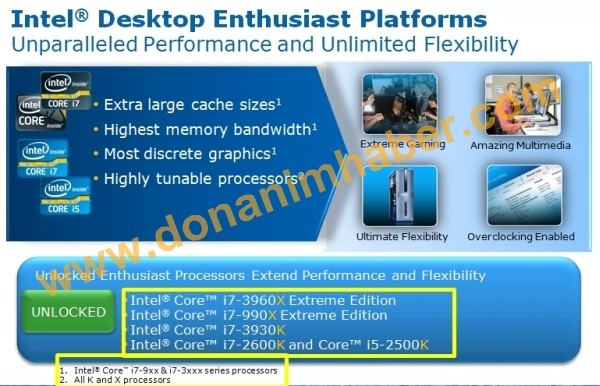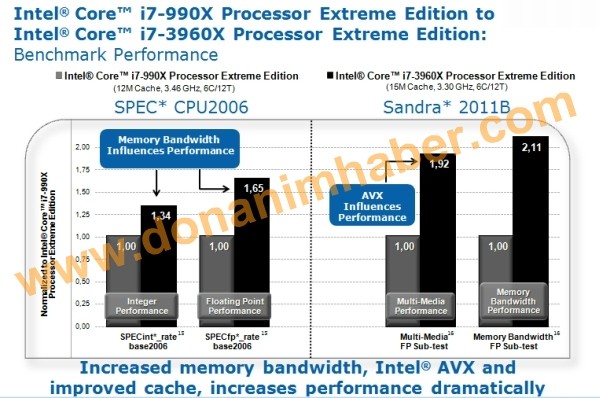Although an exact release date for Intel's upcoming X79 chipset and Sandy Bridge E processors remains uncertain, DonanimHaber has revealed some new details about one of the parts. The Turkish site has published some internal slides that compare Intel's existing hexa-core Core i7-990X Extreme Edition processor to the new flagship i7-3960X. Unsurprisingly, the new part is claimed to offer a dramatic speed boost.

Despite winding the core clock frequency down from 3.46GHz to 3.30GHz, the i7-3960X actually has a higher peak Turbo Boost speed, revving up to 3.9GHz versus 3.73GHz. The slides also indicate that the new 32nm six-core (12 threads) processor will come with an extra 3MB of cache (15MB versus 12MB). Such a configuration should grant the i7-3960X a solid performance boost while keeping thermal loads in check.
In fact, the 3960X is expected to list the same 130W thermal design power as the 990X. Like Intel's other recent Extreme Edition and K series processors, the upcoming Sandy Bridge part will have an unlocked multiplier, giving enthusiasts more flexibility with overclocking. Another key feature is the addition of support for quad-channel DDR3 1333MHz memory, granting the 3960X a substantial increase in memory bandwidth.
According to Intel's data, the 3960X is 12-15% quicker than the 990X in Cinebench, POV-Ray, and ProShow Gold. That gap is even larger when comparing their performance in SPEC CPU2006 and Sandra's multimedia and memory bandwidth tests. In the former, the 3960X achieves 34% more integer performance and 64% better floating point results, while it offers double the speed in both Sandra benchmarks.

We've seen compelling reports that suggest may not make their originally scheduled August or September debut. Intel is reportedly pushing to ship the new platform before the end of 2011 and rumors suggest that the company may have to downgrade some specifications to make the cut. Namely, the X79 chipset might lose support for PCI Express 3.0 and it will offer four SATA/SAS 6Gb/s ports instead of eight.